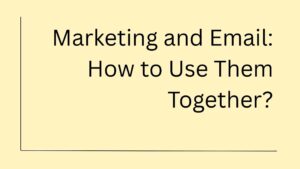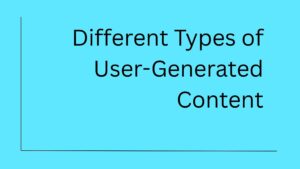Let’s just say it: SEO can feel like a waiting game.
You write a great blog post. You optimize the heck out of it. Maybe you even get a few backlinks. Then… you wait.
And wait some more.
Weeks pass, maybe months, and still, you’re not ranking on page one. Maybe not even close.
It’s frustrating. You start wondering if you did something wrong, or if SEO is even important at all.
Here’s the real answer, without fluff or false hope, because many out here think SEO is dead long ago, but it’s not.
Search engine optimization (SEO) takes time.
Not because it’s broken. Not because you’re doing it wrong. But because that’s how it works.
The timeline can vary a lot. But most of the time, you’re looking at 3 to 6 months for early traction, and 6 to 12 months (or more) for meaningful, consistent results.
Still, that’s the surface-level answer. The better question is:
Why does it take that long?
And what actually happens during those months in between?
Let’s unpack it.
Why SEO Isn’t Instant (And Probable Takes Long Time Than You Guess)
The biggest thing to understand up front is this:
SEO is a long-term strategy. It’s not built for quick wins or flash-in-the-pan traffic spikes.
Because what you’re really doing is:
- Building trust with search engines
- Earning relevance in a competitive space
- Helping users with high-quality content
- Playing by rules that reward consistency, not shortcuts
That’s not something that happens overnight.
Search engines especially Google want to see patterns. Not flukes.
You ranking for a keyword change after publishing one post? That doesn’t mean much. But you’re publishing valuable content every week, earning backlinks, improving your site over time, which tells Google you’re the real deal.
That’s what moves the needle.
A Realistic SEO Timeline To Get Things Make Work: What Happens Month by Month
To make this more concrete, let’s walk through what a typical search engine optimization journey might look like across the first 12 months.
This obviously varies based on your niche, competition, and effort, but it’s a useful guide.
Months 1–2: Foundation and Optimization Planning
This is the prep stage. Not much will change in rankings yet. But what you do here sets the tone for everything else.
You’re probably:
- Auditing your website for technical SEO issues
- Setting up tools (Google Search Console, Analytics, etc.)
- Researching keywords
- Mapping out content strategy
- Fixing slow load times or broken links
- Creating pillar pages or updating old content
It’s unglamorous work, but absolutely necessary.
In fact, a lot of people get stuck right here because they expect results while they’re still laying the groundwork.
This part is like building the base of a house. It doesn’t look exciting. But without it, nothing else stands.
Months 3–4: Content and Crawling
Now you’re publishing.
Maybe a blog post per week. Maybe more. You’re sticking to your strategy, using keywords naturally, and aiming to provide actual value, not just checkboxes.
Google starts to notice.
Its bots crawl your pages, index them, and begin to experiment. You might rank on page 6 or 7 for some long-tail keywords. It’s not glamorous, but it’s movement.
This is where you’ll start to see:
- Impressions in Search Console
- A few clicks trickling in
- Indexing coverage going up
Still, traffic is usually pretty low during this stage. That’s normal.
Months 5–6: Early Search Engine Traction
If you’ve done things right so far, you may start seeing small wins.
Some keywords will start jumping up a few pages. You might crack into the top 30 for terms you care about. You’ll likely see more organic clicks still modest, but now you know it’s working.
At this point, you may also:
- Begin earning a few backlinks naturally
- Get featured in roundups or resource lists
- Notice which content performs better
This is often the “don’t quit” stage. It’s tempting to feel like it’s not happening fast enough. But trust that Google is watching what you do over time.
It rewards patterns, not bursts.
Months 6–9: Authority Building
This is where things can start accelerating.
Assuming you’ve been:
- Publishing high-quality content consistently
- Getting shares or backlinks
- Improving user experience
…then your site starts to be seen as reliable.
Your posts climb from page 3 to page 2. Maybe even break into page 1 for lower-competition terms. You might see traffic double, then triple compared to where you started.
New content gets indexed faster. Updates get noticed. You’re no longer invisible.
This is when SEO stops being guesswork and starts becoming a real growth channel.
Months 10–12 and Beyond: Momentum
This is where search engine optimization – SEO starts working for you.
You’ve built a strong foundation. You’ve earned trust. And now, every new piece of content has a better chance of ranking sooner.
You might be ranking for:
- Mid- to high-difficulty keywords
- Branded searches
- Featured snippets
- “People also ask” boxes
Organic traffic becomes consistent. New leads find you weekly, maybe daily. You’re building something sustainable.
At this point, SEO becomes less about getting found and more about staying relevant.
Factors That Affect How Long SEO Takes
Okay, so that’s the timeline. But it’s not one-size-fits-all.
Here are some of the things that can speed up or slow down your results.
1. Domain Age and Authority
Older domains with a history of good content tend to rank faster.
If you’re starting fresh, it’ll take longer to build authority. That doesn’t mean you can’t do it; it just means you’ll need to work a little harder in the early stages.
2. Competition in Your Niche
Are you writing about personal finance? Health? Marketing? These are highly competitive spaces.
Ranking for “best credit card” or “weight loss tips” can take years if it happens at all.
But if you’re in a narrower niche with less competition, you might rank in months.
3. Content Quality and Consistency
Publishing once every three months? SEO won’t move much.
Publishing once a week with useful, well-structured, human-first content? Now you’re giving Google something to work with.
Also: it’s not just about volume. It’s about quality and intent.
4. Technical SEO Health
Slow-loading site? Broken links? No mobile optimization?
Those things quietly kill your SEO even if your content is great.
Fix the basics first. You can’t outwrite bad infrastructure.
5. Backlinks
Like it or not, backlinks still matter. A lot.
They’re a vote of confidence from other websites. The more (relevant and legit) sites that link to you, the more trustworthy you seem in Google’s eyes.
You don’t need thousands. But you need some. And the earlier you start earning them, the faster SEO starts to pay off, it’s what many search engine optimization-related facts say on the face.
6. User Behavior
Here’s something people often overlook: how users behave on your site matters.
- Do they click on your result and stay?
- Do they bounce back to the search page?
- Do they explore more pages?
Google watches these signals to decide if your content is truly helpful.
If you’re ranking but people leave instantly, that can hurt. But if they stay, scroll, and engage, you’ve just made a strong case to move up.
Search Engine Optimization Is Slow. But It Compounds
Sometimes SEO feels painfully slow compared to running a paid ad.
With paid search, you turn it on and get traffic. You stop paying, it disappears.
SEO is the opposite.
It starts slow. But it builds momentum. And eventually, it compounds.
You write a blog post once, and it brings traffic for years.
You earn one good backlink, and it lifts five pages.
You improve your load speed and rankings across your whole site get better.
Little things stack up over time. And suddenly, you’re not chasing traffic anymore. You’re attracting it.
Common Mistakes That Delay SEO Results
If your Search Engine Optimization isn’t working even after a few months, some of these might be the reason why:
- You’re targeting keywords that are too competitive.
Try long-tail terms first. “Best running shoes” is hard. “Best running shoes for flat feet under $100”? Way more doable. - Your content doesn’t match search intent.
Don’t just include the keyword. Solve the actual problem the user has. - Your site is too slow or broken.
A pretty site that loads in 5 seconds is still a bad site. - You publish and forget.
SEO is not “set and forget.” Update old posts. Refresh stats. Add internal links. - You quit too early.
This one’s huge. So many give up in month 3 or 4, right before things were about to turn.
So… Is SEO (Search Engine Optimization) Worth the Wait?
Short answer: yes, if you’re willing to be patient and consistent.
SEO – Search Engine Optimization isn’t sexy. It doesn’t give you immediate dopamine hits. But over time, it becomes one of the most cost-effective, reliable, and sustainable growth channels available.
Think of it like planting a tree.
You don’t see much in the first few weeks. Maybe just a few leaves. But give it water, sunlight, and time, and suddenly, it’s providing shade, oxygen, and fruit for years.
Final Thought
So, how long does it take for SEO to work?
Longer than you want.
But probably faster than you think if you’re doing it right.
The timeline isn’t fixed. But the process? It’s well-proven:
- Lay a strong foundation
- Publish consistently
- Improve over time
- Be patient
You won’t see magic in 30 days. But give it six months of real effort and you’ll be surprised at what shows up in your analytics.
Just don’t stop too soon.
That’s where most people lose.

The Chief Author and Editor at Intothecommerce. As a seasoned expert in digital marketing, I direct the site’s strategic content and ensure every piece meets the highest industry standards. My insights drive our coverage on SEO, paid media, and cutting-edge marketing technology.





1 thought on “How Long Does it Take for SEO to Work? [Tips Included]”
For the reason that the admin of this site is working, no uncertainty very quickly it will be renowned, due to its quality marketing contents.